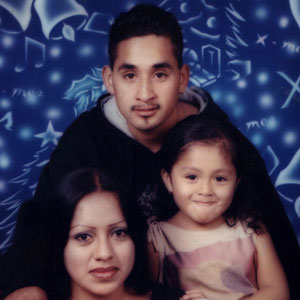 Yazmin, 14, from Huntington Beach, California grew up with parents who married and had her when they themselves were just teenagers. At times, her parents would fight a lot and the domestic violence really scared her. She shares how the situation improved, and says her goal in sharing her personal story is to let other teens “know that they’re not alone, that there’s always someone out there who’s going through the same, or maybe much worse.”
Yazmin, 14, from Huntington Beach, California grew up with parents who married and had her when they themselves were just teenagers. At times, her parents would fight a lot and the domestic violence really scared her. She shares how the situation improved, and says her goal in sharing her personal story is to let other teens “know that they’re not alone, that there’s always someone out there who’s going through the same, or maybe much worse.”
Watching Life on the Line, Yazmin said, “It helped me realize that I was lucky to have my parents here. I have something in common with Kimberly, because we’ve both been through really difficult situations, and we both learned how to figure out solutions for our problems.”

Yazmin’s parents, who were teenagers when they met.
Yazmin is right. It turns out many migrant families face struggles with domestic violence that affect both parents and their children. Beyond the usual stress of being a young parent, added stress of migration, family separation and reunification, living in the shadows, and socioeconomics cause some parents to turn to drugs and alcohol, where in other families, tensions mount and lead to domestic violence. The National Latin@ Network collects some of the best research to date on intimate partner violence (IPV) among Latinas, citing a study that found 20-25% of Latinas in the U.S. will suffer IPV in their lifetime. U.S. Department of Health and Human Services offers great information about working with youth from migrant families. These issues can be resolved and improved, and several organizations are working on innovative projects that address the roots, rather than the symptoms, of these common family problems.
 Learn more about what you can do to help end IPV and advocate for healthy families and communities via the No More campaign, a project of Casa de Esperanza.
Learn more about what you can do to help end IPV and advocate for healthy families and communities via the No More campaign, a project of Casa de Esperanza.